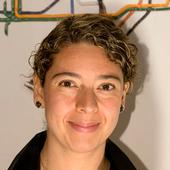Agenda
-
Coffee
- Session 3: EDCs
-
Keynote Keynote address: EU policy on EDCs
- EU Strategy for EDCs
- EU legislative framework
- EDC criteria
- Test methods and guidelines for identification of EDCs
-
Danish Policy on EDCs
- Danish Parliament Agreement on Chemicals Initiatives for 2018-2021 – main policy objectives and initiatives relevant to EDs and EDCs
- Zooming in: Danish Policy on EDCs
- Main Challenges seen from an EU-MS Perspective
 Sonja Canger
Head of Division – Pesticides & Biocides, Danish Environmental Protection Agency (DEPA)
Sonja Canger
Head of Division – Pesticides & Biocides, Danish Environmental Protection Agency (DEPA) -
Challenges for industry in dealing with the ED criteria
- ED criteria principle concern
- Potentially impacted regulations
- As example Plant Protection :
- impact on industry and beyond,
- concrete case with EU criteria
- The guidance document possible challenges
-
Q&A
-
Refreshments
-
Concerns on how effective the EDC criteria will be in protecting the environment and human health
- Is the burden of proof too high?
- Will the mode of action analysis block the decisions?
- Is focus of the guidance document too narrow (focusing on EATS)?
- Will non-mammalian species remain unprotected?
-
Supermarkets struggling to control EDCs - can this make a difference?
- Examples of how and why Coop works with identifying and banning known EDCs in products
- Why not to wait for legislation
- Examples of how to involve consumers and raise awareness
-
Q&A
-
Panel discussion: As the EU progresses criteria to identify EDCS, how can companies prepare? Do the criteria give some clarity on future expectations of the regulators, when should businesses act and what are the first steps to take?
-
Lunch
- Session 4: Nano Materials - what are the stakeholder views on the REACH annexes, the definition of nano, nano mandatory registers/observatory and impacts on business
-
Setting the scene, the ECHA register, developing guidance
-
The four horsemen of regulation of nanomaterials and products from a scientific perspective
- Unclear definition(s) of nanomaterials
- REACH threshold values and information requirements not (yet) tailored to the nanoscale
- Unclear how to overcome the technical and scientific obstacles of chemical risk assessment when applied to nanomaterials
- Lack of access to information hampers exposure assessment and the good intentions of EU Observatory for Nanomaterials does not change that
-
Suddenly nanomaterials: the case of organic pigments
- Why are organic pigments nanomaterials
- The practical approach of organic pigments manufacturers
- Safety of organic pigments as nanomaterials
- Different notification requirements in the EU and their relevance for organic pigments
 Pierfrancesco Fois
Deputy Executive Director, Ecological and Toxicological Association of Dyes and Organic Pigments Manufacturers
Pierfrancesco Fois
Deputy Executive Director, Ecological and Toxicological Association of Dyes and Organic Pigments Manufacturers -
Q&A
-
Refreshments
-
Small steps towards success –Industries’ Regulatory Nano Challenges
- European regulatory risk assessment challenges for industries and global considerations
- International harmonisation benefits global and local actors
- Recent nano success stories
-
EU observatory for nanomaterials: A constructive view on future regulations
-
Q&A/panel discussion: - How can we find reasonable ways to generate traceabilty information on nanomateriales that many stakeholders ask for?
-
Conclusion/close of conference




.jpg)



